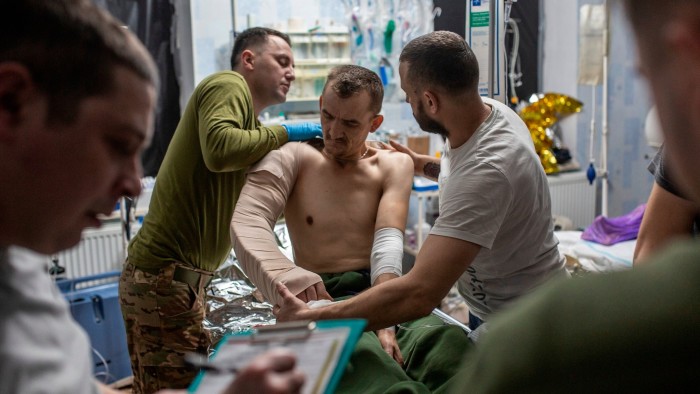Stay informed with free updates
Simply sign up to the War in Ukraine myFT Digest — delivered directly to your inbox.
Russian forces are heading towards Ukraine’s Dnipro region, bypassing an anticipated heavy urban battle in the eastern Donetsk area.
Ukraine has been preparing for urban warfare in Pokrovsk, a key logistics and transport hub for the remaining Ukrainian-controlled parts of the Donetsk region, since the summer.
But Russian forces pushing up from the south are now heading west of Pokrovsk and are just under 7km from taking the highway leading to the Dnipropetrovsk region, according to mapping group Deep State, which has ties to Ukraine’s defence ministry.
“They understand that they will lose a lot of their forces trying to take Pokrovsk so they have decided to pursue a different strategy and approach from the south and go around it,” Andriy Cherniak, a senior Ukrainian military intelligence official, told the Financial Times on Sunday. “They will try to cut off all the supplies to Pokrovsk so that our forces leave there.”
Russia’s ministry of defence announced on Sunday the capture of Yantarnoye settlement in the Donetsk region, approximately 50km south of Pokrovsk, following “active offensive operations”.
“The border of the Dnipropetrovsk region is now approximately 6.5km away,” Russian military blogger Voenkor Kotenok posted on his Telegram channel on Sunday.
The next major town inside Dnipropetrovsk is Pavlograd, a major Ukrainian military base. The region also includes Dnipro, Ukraine’s fourth-largest city.
How quickly Russian forces are able to take the highway towards Dnipropetrovsk, depends on the extent of fortifications in the area as well as Ukrainian manpower, which has been in increasingly short supply.
One Ukrainian soldier whose brigade is fighting in the Pokrovsk area, who spoke to the FT on condition of anonymity, said the terrain would also be a factor, describing it as “deep, muddy and impassable”.
Russian forces gained thousands of square kilometres of Donetsk region in 2024. The Institute for the Study of War, a Washington-based think-tank, said Russia captured approximately 4,200 sq km of Ukrainian territory last year, most of which was in the Donetsk region.
This momentum has put them in a position to take the highway to the Dnipropetrovsk region, which would cut off Ukrainian forces in Pokrovsk as well as forcing Ukrainian forces to defend from two directions at once.
“They are trying to get maximum territory so that when their forces are eventually exhausted, they have something to negotiate with,” said Cherniak.
Ukraine announced on Saturday that it had taken its first North Korean prisoners of war from Russia’s southern Kursk region, providing further proof of Pyongyang’s involvement.
Ukrainian President Volodymyr Zelenskyy said that the captured men were receiving medical assistance, adding that “the world needs to know the truth about what is happening”.
Ukraine launched a renewed push in Russia’s Kursk region last week, after losing around half the territory captured in its incursion in August. The occupation of Russian territory is still seen by Ukraine and its allies as key for any potential negotiations.
US secretary of state Antony Blinken told reporters in Seoul on Monday that Kursk was important for Ukraine. “Certainly it’s something that would factor in any negotiation that may come about in the coming year,” he added.
Animation by Steven Bernard


